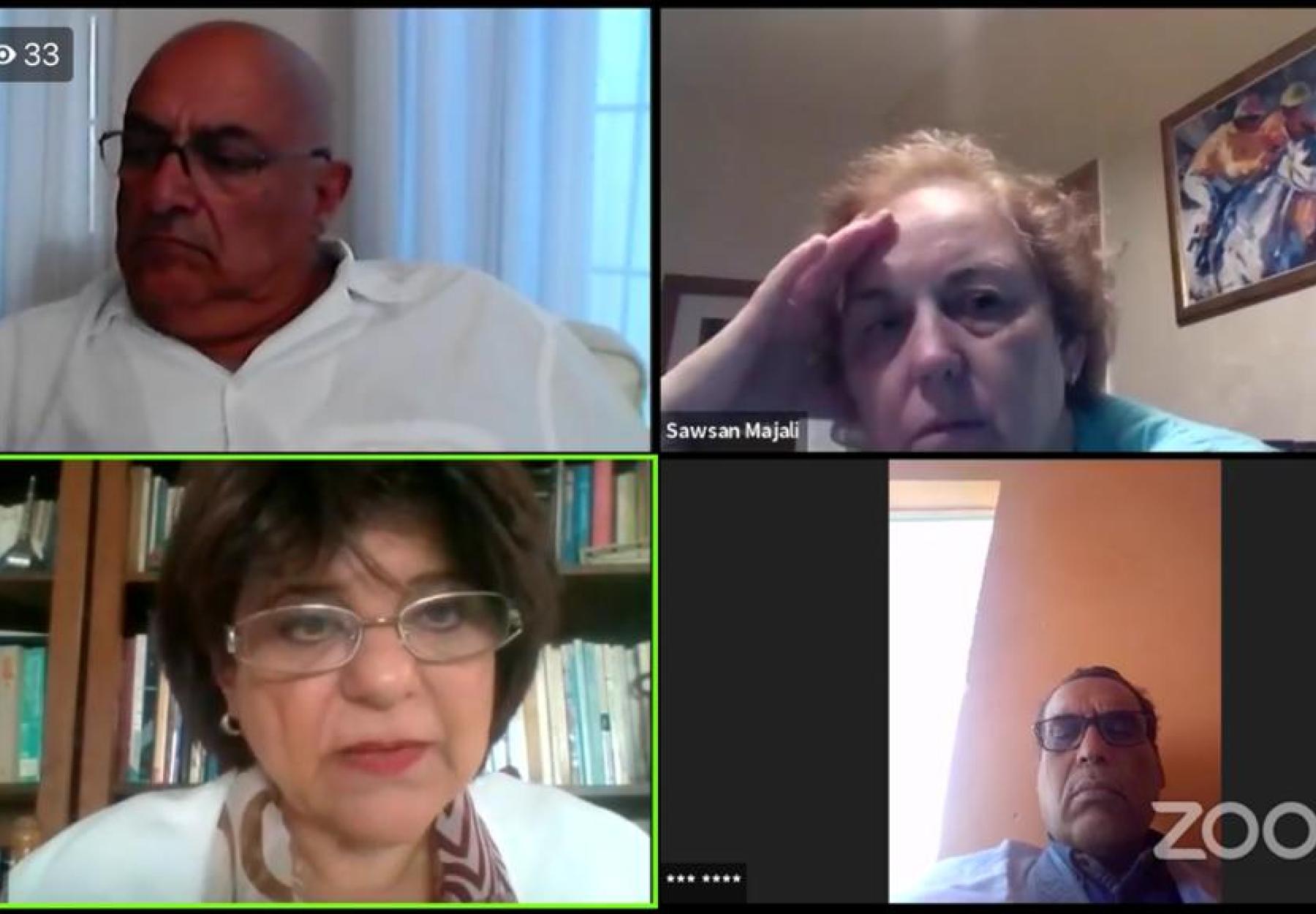
Razan Zuayter, the General Coordinator of the Arab Group for the Protection of Nature (APN) and President of the Arab Network for Food Sovereignty(ANFS), described how the coronavirus revealed vulnerabilities in many areas in the Arab region, particularly in food production. She noted the weak official response to two decades of APN calls for attention to this.
As a keynote speaker in an online seminar on "Social Economics and Food Security in the Arab World" (3 June 2020), Zuayter stated that the concepts of social protection and food security are complementary and interrelated, both protecting peoples in times of risks and crises. She likened their relationship to that of human dignity and bread.
During the event, hosted by the Arab Renaissance for Democracy and Development (ARDD), Zuayter called for increased attention to rural areas of Arab countries, as they are most vulnerable to crises, even while playing a significant role in ensuring social protection and food security. She spoke of the injustices shouldered by agricultural workers within the daily-work system, especially women, and the importance of foregrounding these workers within long and short term strategies.
Zuayter sought to reconsider agricultural policy as tributary for broader social protection, while making clear that the keystone of this effort is the political will to prioritize local production, small farmers, and the inputs they need: seeds, fertilizer, water, etc. She pointed out that the Ministry of Agriculture should not passively wait for this to happen, but has options like partnering with the Ministry of Development to focus social aid on things like seed distribution instead of cash subsidies that are quickly exhausted. Zuayter gave the example of Brazil’s social protection and food security initiative, "Zero Hunger,” which lifted 20 million citizens out of poverty in just 5 years by pairing emergency food support with family farming. This was achieved by providing food to the poor on the condition that it be purchased it from small farms. Zuayter hopes Jordan could benefit from this sort of initiative.
Zuayter demanded that small farmers’ debts be written off and their taxes canceled. Furthermore she called for the government to fix prices in order to protect farmers from predatory buyers and allow the sale of their goods to local markets. Zuayter cautioned against relying on the policies and directives of the World Bank and the International Monetary Fund, noting that they do not serve the interests of the countries in which we live. Speaking on the concept of social economics, she described the conversation as having been somewhat loose, and its path towards implementation on the ground as unclear.
She added, "We are offering you something tangible. The farmer must have access to inputs: land, seeds, and water, and must produce what society needs, not just what the export market favors. "
The Mauritanian philosopher Dr. Abdullah al-Sayyid Ould Abah and former Jordanian Economic Minister Yusuf Mansur attended the event moderated by Jordanian senator Sawsan Majali.